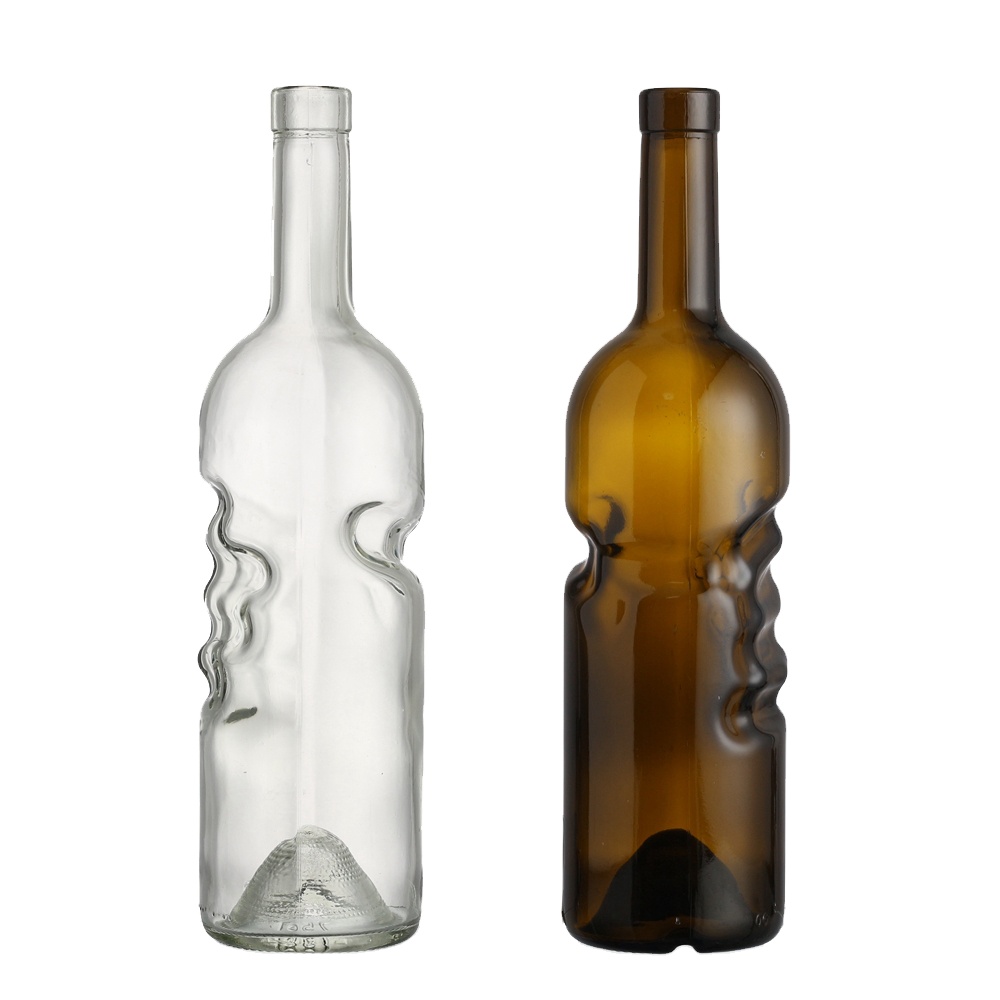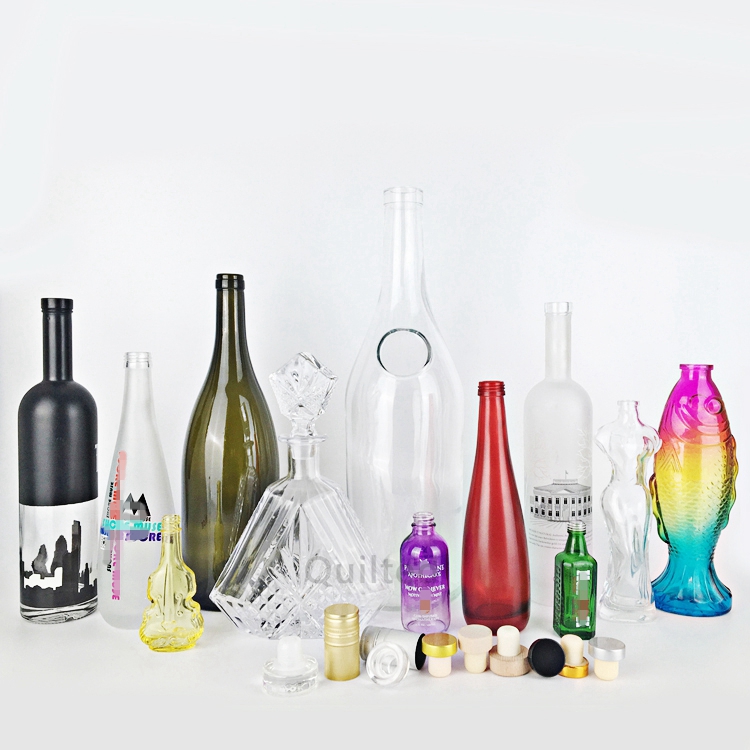When sourcing glass wine bottles, buyers often notice significant price variations—even for seemingly similar products. The wholesale price depends on multiple factors, from material choices to production processes and market demand.
Here’s a breakdown of the 5 major factors that determine wine bottle pricing:
1. Material Differences
The type of glass used significantly impacts cost:
| Glass Type | Characteristics | Price Range (Compared to Standard Glass) |
|———————-|—————————————–|——————————–|
| High-White Glass | Ultra-clear, premium appearance | +15–25% |
| Crystal Glass | Brilliant clarity, high-end luxury | +20–30% |
| Plain White Glass| Standard clarity, cost-effective | Base Price |
| Milky White Glass| Opaque (e.g., Moutai bottles) | +10–20% |
| Colored Glass | Amber, green, or UV-protective tints | +5–15% |
- Red & Beer Bottles: Typically use colored glass (UV protection).
- Premium Spirits: Often opt for crystal or high-white glass for luxury appeal.
—
2. Bottle Structure & Sealing Process
The cap type and sealing mechanism affect pricing:
A. Cap Materials
| Cap Type | Features | Price Impact |
|————————|—————————————|——————|
| Plastic Cap | Basic, cost-effective | Lowest Cost |
| Aluminum Cap | Premium look, better seal | +10–20% |
| Aluminum-Plastic Combo | Combines durability & aesthetics | +15–25% |
B. Sealing Quality
- Standard Seal: Basic plastic caps (low cost).
- Premium Seal: Cork + foil, screw caps with tamper-proofing (+20–30%).
3. Quality & Manufacturing Standards
Different quality grades lead to price variations:
| Quality Factor | Low-Cost Bottles | Premium Bottles (QLT Glass Standard) |
|———————–|———————-|——————————————|
| Refractive Index | Standard clarity | Ultra-clear, high light transmission |
| Internal Stress | Higher risk of breakage | Annealed for <5 µm/cm stress |
| Impact Resistance | Moderate | 20+ bar pressure tested |
- Cheaper bottles may have micro-defects (bubbles, uneven thickness).
- High-end bottles undergo X-ray & laser inspection for perfection.
—
4. Production Equipment & Efficiency
The factory’s technology level affects pricing:
| Production Factor | Low-Cost Factories | Advanced Factories (Like QLT Glass) |
|———————–|————————|——————————————|
| Mold Quality | Standard steel molds | Nickel-alloy molds (5x lifespan) |
| Automation | Manual QC checks | AI vision inspection (99.9% accuracy) |
| Output Speed | Slower (higher labor cost) | High-speed IS machines (500+ bottles/hr) |
- Manual production = Higher defect rates → Higher long-term costs.
- Automated lines = Consistent quality → Better ROI for bulk buyers.
—
5. Order Timing & Market Demand
- Stock Availability:
- Ready stock = Lower price (no urgent production needed).
- Custom orders = 15–20 days lead time (may cost +5–10%).
- Seasonal Demand:
- Peak seasons (Q4 holidays) → Prices increase 5–15%.
- Off-season (Q1–Q2) → Best time for bulk discounts.
—
QLT Glass’ Competitive Pricing Strategy
✅ Bulk Discounts: 5–25% off for orders >50,000 units.
✅ Customization: No excessive fees for unique shapes/colors.
✅ Fast Turnaround: 15-day production for urgent orders.
Post time: Apr-07-2025

